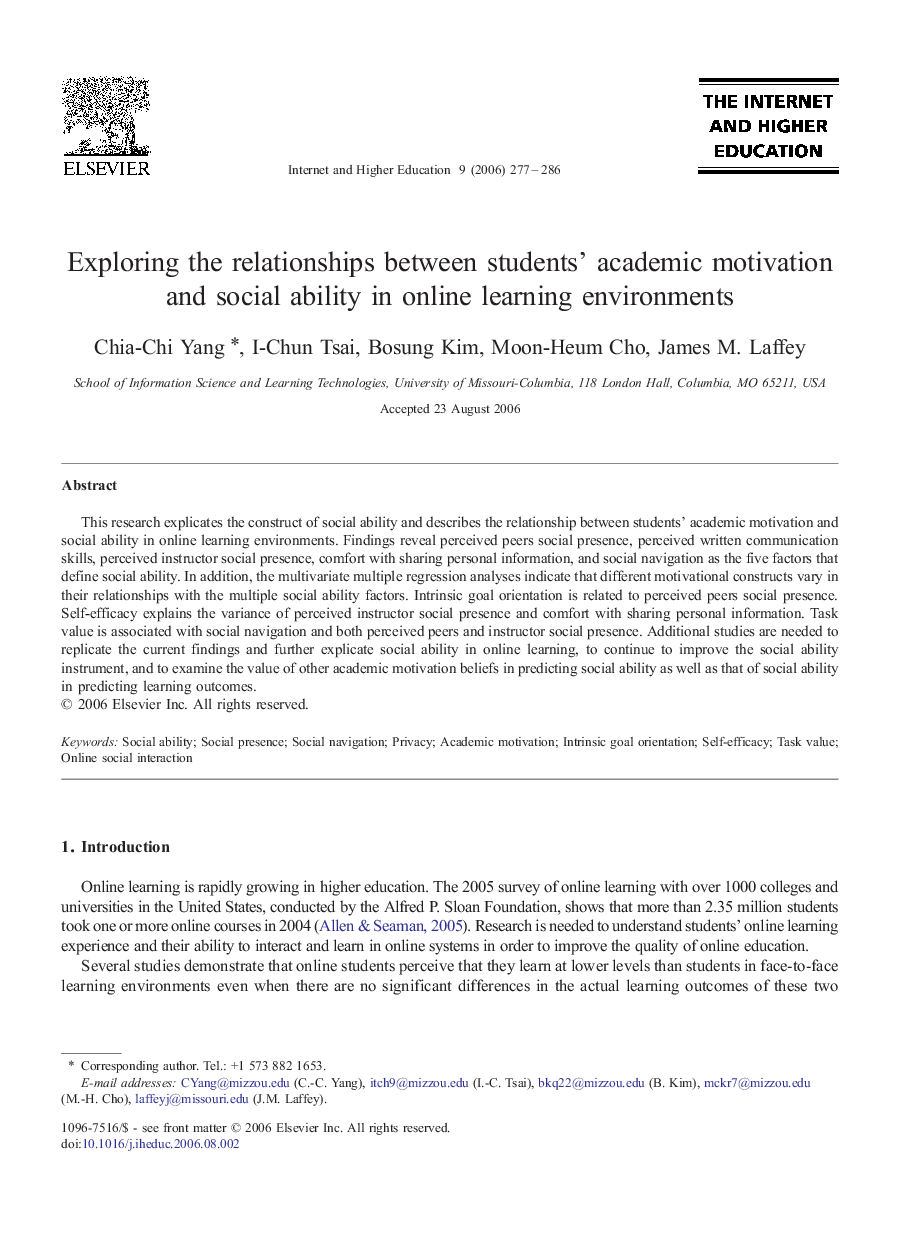| Article ID | Journal | Published Year | Pages | File Type |
|---|---|---|---|---|
| 358054 | The Internet and Higher Education | 2006 | 10 Pages |
This research explicates the construct of social ability and describes the relationship between students' academic motivation and social ability in online learning environments. Findings reveal perceived peers social presence, perceived written communication skills, perceived instructor social presence, comfort with sharing personal information, and social navigation as the five factors that define social ability. In addition, the multivariate multiple regression analyses indicate that different motivational constructs vary in their relationships with the multiple social ability factors. Intrinsic goal orientation is related to perceived peers social presence. Self-efficacy explains the variance of perceived instructor social presence and comfort with sharing personal information. Task value is associated with social navigation and both perceived peers and instructor social presence. Additional studies are needed to replicate the current findings and further explicate social ability in online learning, to continue to improve the social ability instrument, and to examine the value of other academic motivation beliefs in predicting social ability as well as that of social ability in predicting learning outcomes.
